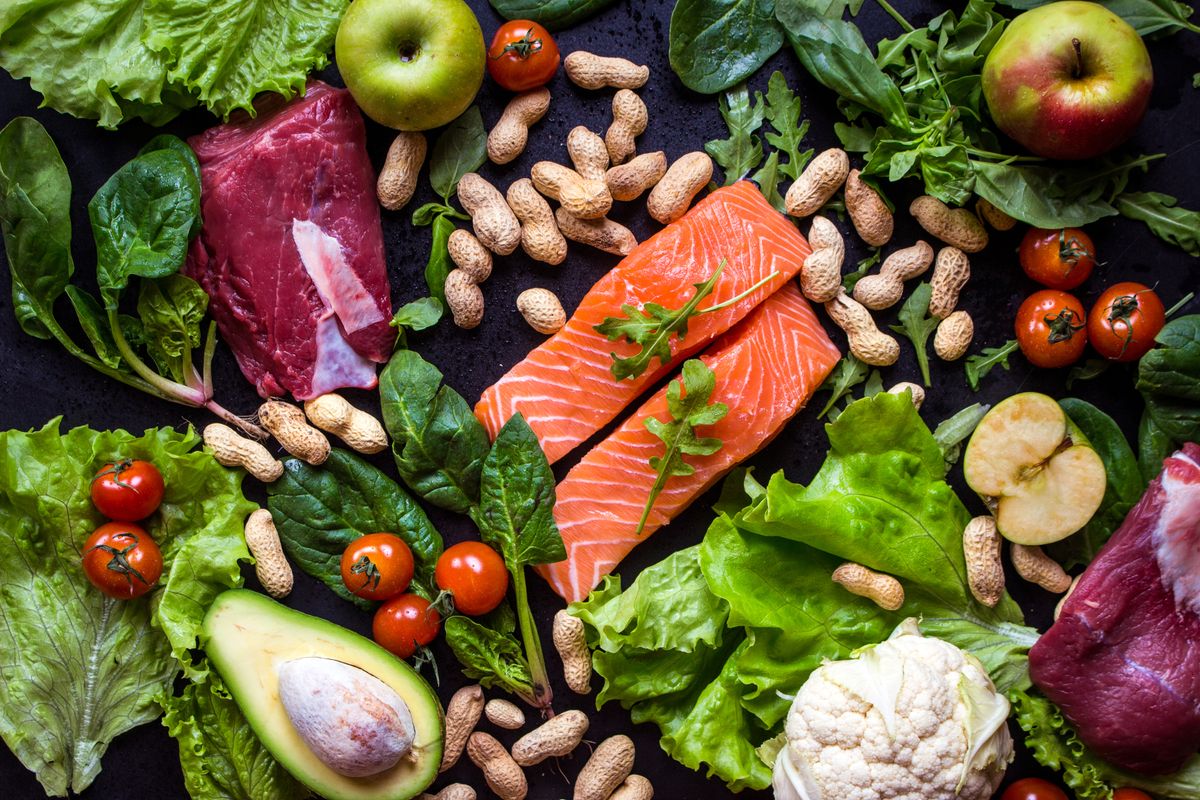February marks the start of American Heart Month, which raises awareness about the importance of promoting heart health. With cardiovascular diseases being the leading cause of death globally, it is crucial to take proactive measures to prevent such conditions.
By adopting an active lifestyle and following a healthy diet, individuals can significantly reduce their risk of developing heart-related complications.
One of the easiest ways to support heart health is by making informed food and drink choices. In this regard, we consulted with dietitians to identify the top foods and drinks that can help reduce the risk of cardiovascular diseases. By incorporating these items into your daily routine, you can take small steps towards promoting heart health and enjoying a long, healthy life.
1) Eggs

According to Lauren Manaker, MS, RDN, LD, CLEC, author of The First Time Mom's Pregnancy Cookbook, The 7 Ingredient Healthy Pregnancy Cookbook, and Fueling Male Fertility, eggs are a recommended part of a healthy diet by both the Dietary Guidelines for Americans and the American Heart Association (AHA). In fact, the AHA states that "healthy individuals can include up to a whole egg or equivalent daily" as part of a heart-healthy diet.
For older individuals with normal cholesterol levels, Manaker advises that consuming up to two eggs per day is acceptable, given the nutritional benefits and convenience of eggs within a heart-healthy diet. Data suggests that consuming up to one egg per day may lower the risk of heart disease and stroke, and eggs may also contain antioxidant properties that can help reduce the risk of cardiovascular disease.
2) Pistachios
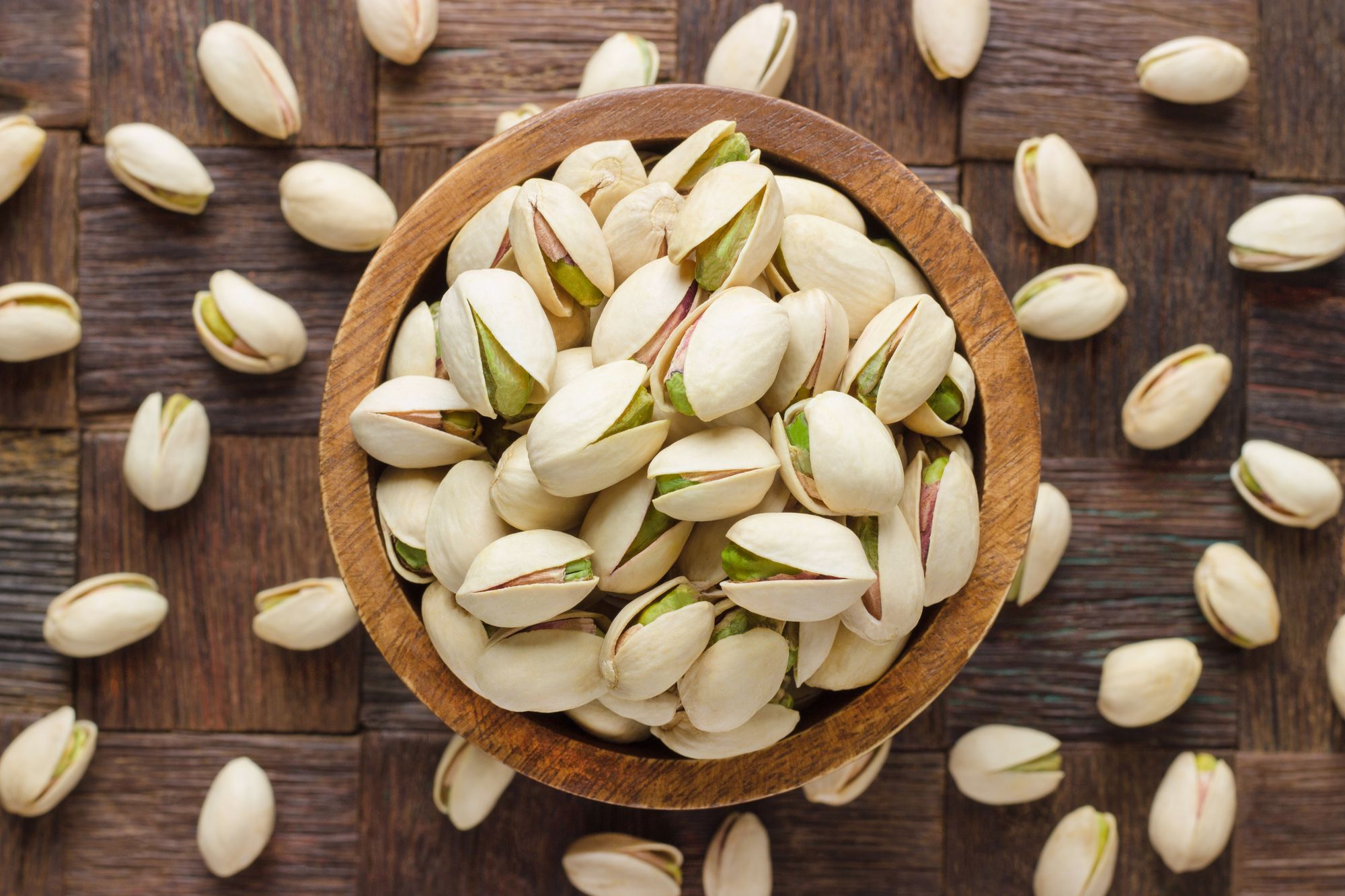
Incorporating nuts into your diet is a beneficial way to promote heart health, according to Tammy Lakatos Shames, RDN, CDN, CFT, CLT, and Lyssie Lakatos, RDN, CDN, CFT, CLT, also known as The Nutrition Twins. The plant-based snacks can help regulate cholesterol levels, reducing the risk of heart disease. Studies have shown that people who regularly eat nuts have a lower risk of heart attacks and dying from heart disease. Consuming an ounce of nuts five or more times a week can lower the risk of cardiovascular disease by 14% and coronary heart disease by 20%.
Pistachios, in particular, have antioxidant properties that protect the body from free radicals, ultimately promoting heart health, as noted by Lauren Manaker, MS, RDN, LD, CLEC, author of various cookbooks. Free radicals attack healthy cells and cause inflammation, contributing to the development of chronic health conditions, including heart disease. A study by Cornell University found that pistachios have a high antioxidant capacity comparable to blueberries, pomegranates, cherries, and red wine. Pistachios have been shown to benefit weight management, cholesterol levels, blood sugar control, and overall heart health.
3) Green or Black Tea

Lauren Manaker, MS, RDN, LD, CLEC, explains that green and black tea contain flavan-3-ols, a plant compound that supports various aspects of our health, including heart health. The Academy of Nutrition and Dietetics has provided guidance on the recommended daily intake of flavan-3-ols to support overall health. Drinking two cups of green or black tea daily provides sufficient flavan-3-ols to meet the recommended intake of 400-600 milligrams.
4) Whole Grains
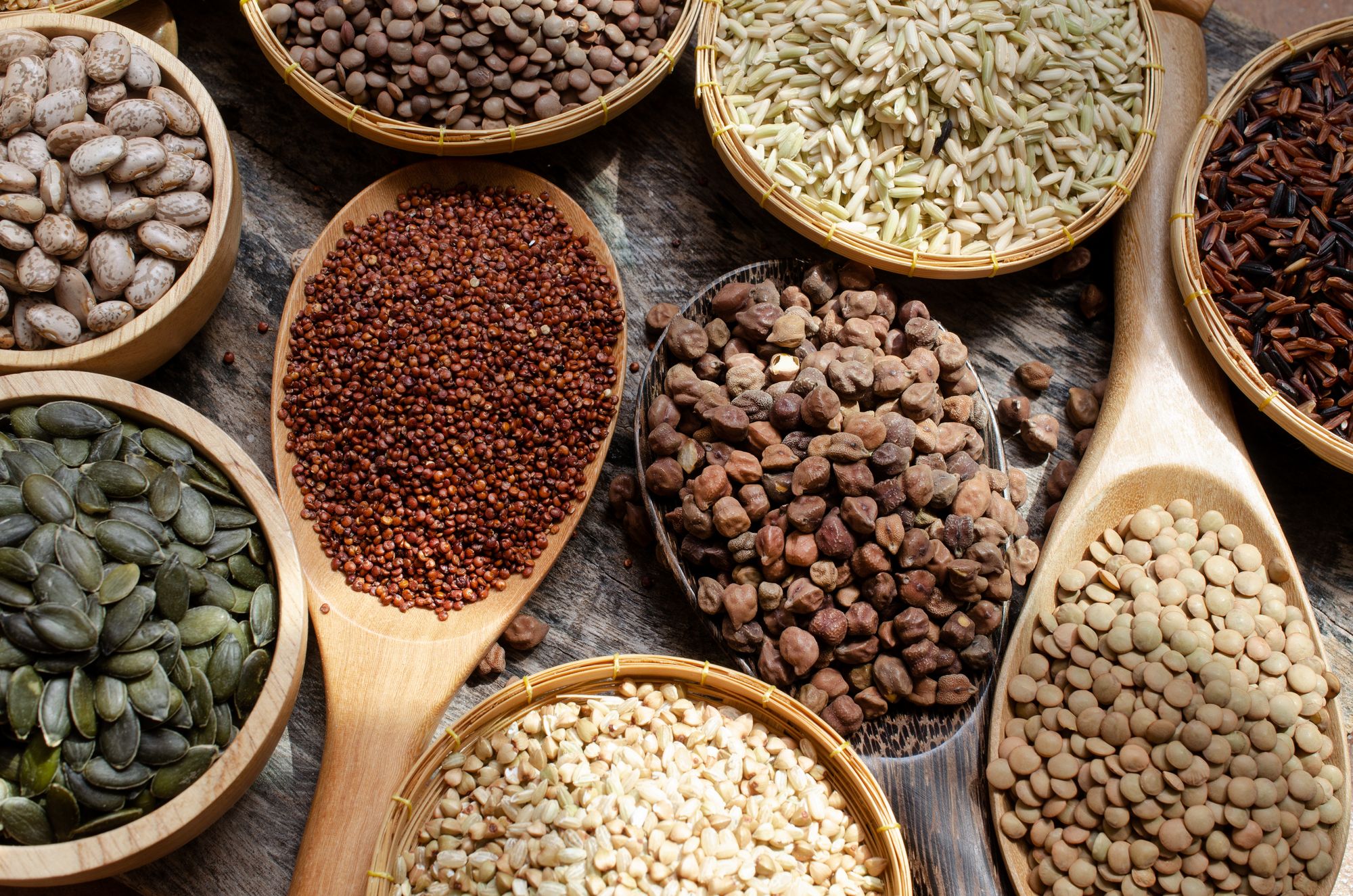
The Nutrition Twins recommend incorporating whole grains like brown rice, barley, rye, quinoa, and whole wheat into your diet to support heart health. These grains have been associated with lower systolic blood pressure, lower cholesterol levels, and a reduced risk of heart disease. A research analysis of over 45 studies found that consuming three or more servings of whole grains per day was linked to a 22% lower risk of heart disease. On the other hand, refined and processed grains such as white bread and processed snacks should be avoided, as they can increase the risk of heart disease.
Oats, in particular, are an excellent whole grain for reducing the risk of heart disease because they are rich in soluble fiber, a nutrient that aids in cholesterol management. Toby Amidor, MS, RD, CDN, FAND, an award-winning nutrition expert and Wall Street Journal bestselling author of Diabetes Create Your Plate Meal Prep Cookbook, explains that soluble fiber in oats can help lower LDL ("bad") cholesterol levels. The FDA recognizes the health benefits of soluble fiber, with a health claim linking high soluble fiber diets that include fruits, vegetables, and grain products like oats to a reduced risk of coronary heart disease. Incorporating these items into a low-saturated fat diet can help lower LDL cholesterol and decrease the risk of heart disease.
5) Blueberries
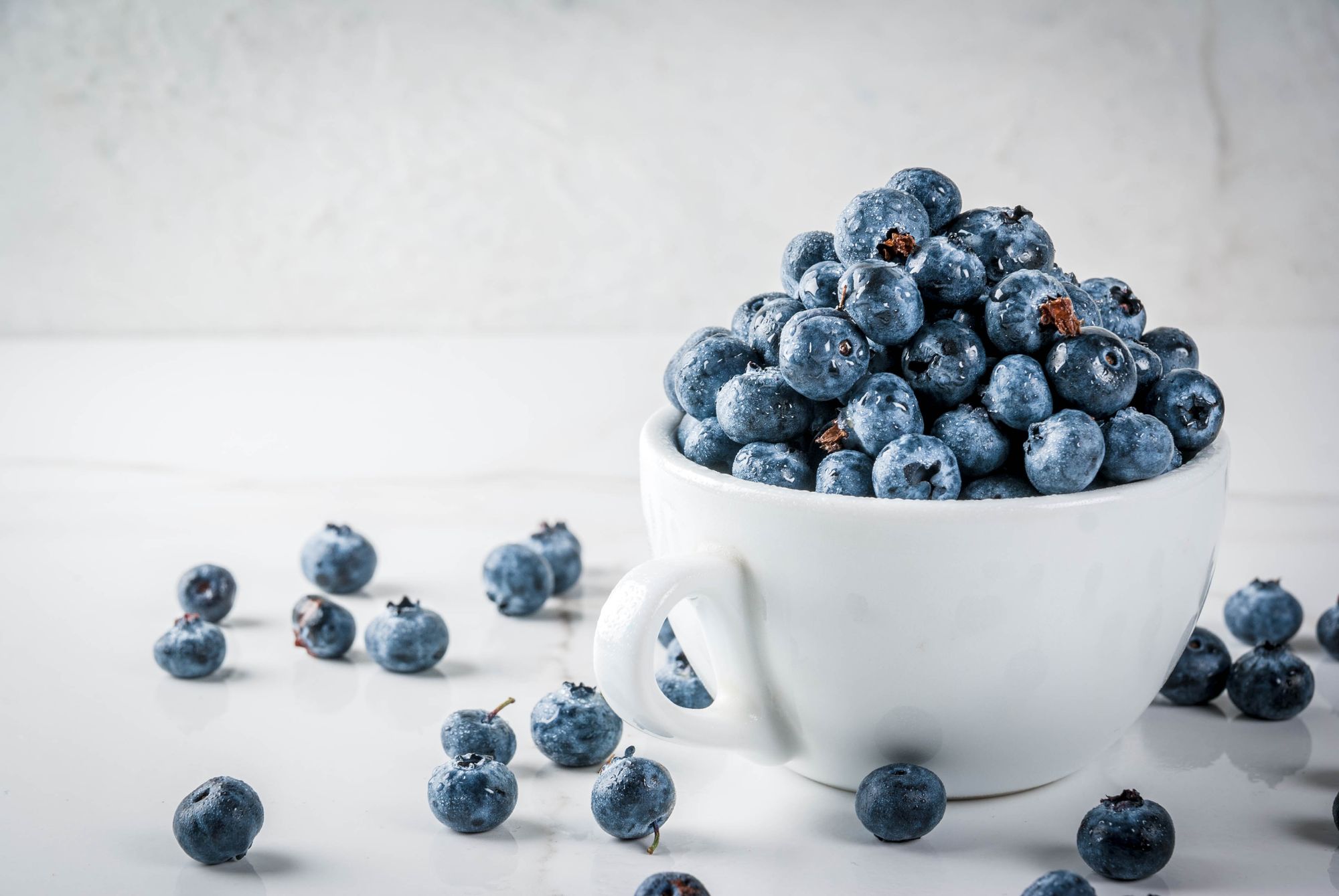
Toby Amidor, MS, RD, CDN, FAND, who partners with the U.S. Highbush Blueberry Council, highlights the beneficial nutrients in fresh and frozen blueberries that support heart health. A healthy dietary pattern that includes fruits, according to the Dietary Guidelines for Americans (DGAs), is associated with a reduced risk of chronic diseases, including cardiovascular disease.
A recent study published in Clinical Nutrition found that consuming 26 grams of freeze-dried blueberries, equivalent to one cup of fresh blueberries, can reduce the acute cardiometabolic burden of energy-dense meals. The study revealed that adding anthocyanin-rich blueberries to high-fat/high-sugar meals can reduce insulin and glucose levels, lower total cholesterol, and improve good cholesterol (HDL-C) in the 24 hours following the meal. These findings are significant as elevated post-meal glucose and impaired glucose tolerance are linked to increased heart disease risk, which is already heightened in individuals with metabolic syndrome.
Although further research is necessary, Amidor suggests that adding just one cup of anthocyanin-rich foods like blueberries to high-fat/high-sugar and energy-dense meals can reduce risk markers such as glucose, insulin, and cholesterol.
The Nutrition Twins explain that wild blueberries contain anthocyanins, nutrients, and fiber that improve cardiovascular risk profiles. Their anthocyanins aid blood vessels in functioning better and remaining healthier, thus reducing the heart's workload in circulating blood throughout the body. Wild blueberries are versatile and can be added to baked goods, smoothies, cereals, yogurt, or eaten alone.
6) 100% Orange Juice

Lauren Manaker, MS, RDN, LD, CLEC, points out that 100% orange juice, without added sugars, is rich in nutrients such as vitamin C, potassium, and folate that support heart health. Citrus fruits contain unique plant compounds called hesperidin and naringenin that offer various heart health benefits, including a reduced risk of stroke. One meta-analysis showed that regular orange juice consumption can have beneficial effects on blood pressure and good cholesterol levels among overweight and obese adults.
7) Tomatoes

The Nutrition Twins note that tomatoes are nutrient-dense and provide heart-protective antioxidants and nutrients such as lycopene, beta-carotene, folate, potassium, vitamin C, flavonoids, and vitamin E. Studies show that these nutrients can lower "bad" LDL cholesterol, blood pressure, and homocysteine, an inflammation measure and independent risk factor for heart disease. Tomatoes also make cells less "sticky," promoting easier blood flow.
The Twins suggest that cooking tomatoes can enhance the bioavailability of antioxidants such as lycopene and beta-carotene up to four times. Although fresh tomatoes can be added to salads, burritos, sandwiches, and wraps, they encourage incorporating tomatoes into cooked meals like chili, stews, sauces, and cooked dishes, or consuming them in tomato sauce.
8) Salmon

The Nutrition Twins explain that salmon is an excellent source of omega-3 fatty acids that reduce inflammation throughout the body, which can otherwise damage blood vessels and lead to heart attacks and strokes. Omega-3s can also lower triglycerides, blood pressure, and the risk of irregular heartbeats, stroke, and heart failure.
In addition to salmon, other sources of omega-3 fatty acids include sardines, cod, herring, Atlantic mackerel, and lake trout. The Twins suggest consuming at least two servings of these fish per week to reap their health benefits.
9) Cruciferous Vegetables
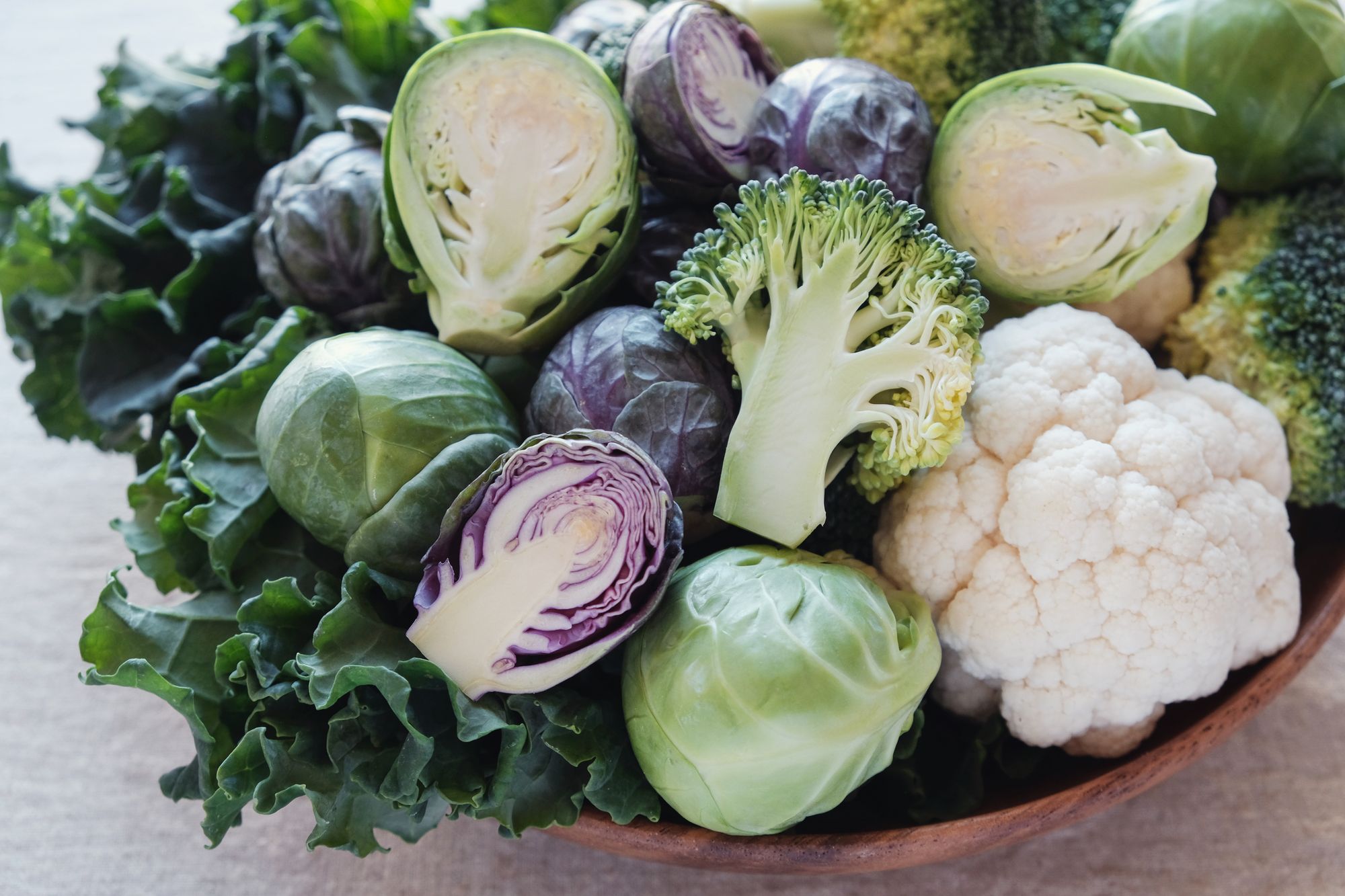
The Nutrition Twins note that cruciferous vegetables, such as broccoli and Brussels sprouts, can help fortify heart health and decrease the risk of cardiovascular complications. They explain that higher intake of cruciferous veggies, like broccoli, can reduce the risk of heart disease events such as heart attacks and strokes. Selenium and sulforaphane are two essential components in broccoli that play a key role in protecting against heart disease.
Similarly, Brussels sprouts are also potent heart protectors that can prevent clogged arteries, a significant cause of heart attacks and strokes. The heart-healthy benefits of Brussels sprouts come from their fiber, carotenoids, folate, vitamins C, E, and K, as well as sulfur compounds called glucosinolates, which have potent anti-inflammatory and antioxidant capabilities. These compounds can protect cells against damage and lower "bad" LDL cholesterol levels.
To incorporate Brussels sprouts into meals, the Nutrition Twins suggest adding them to salads, stir-fries, pasta and rice dishes, or roasting them in olive oil and garlic.

